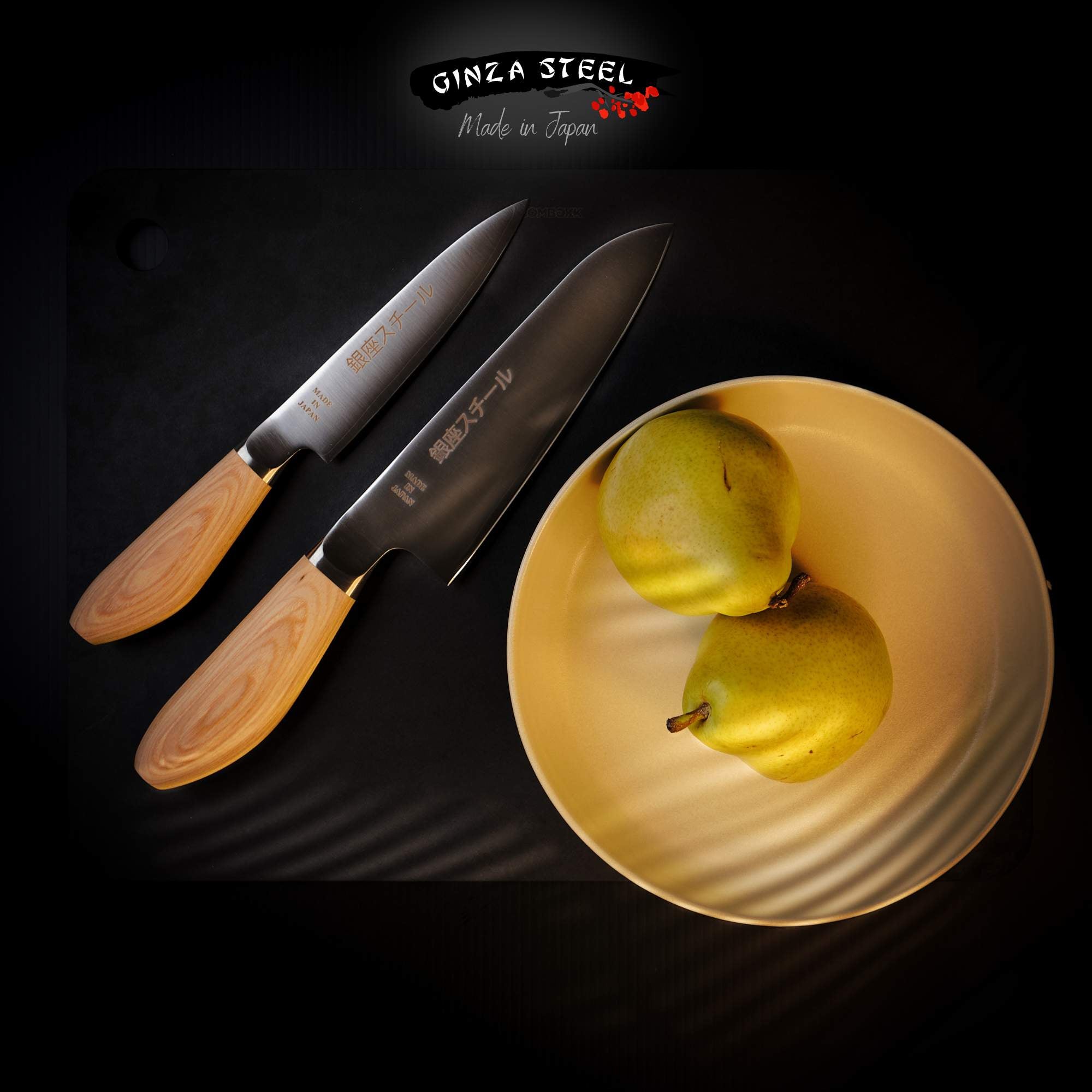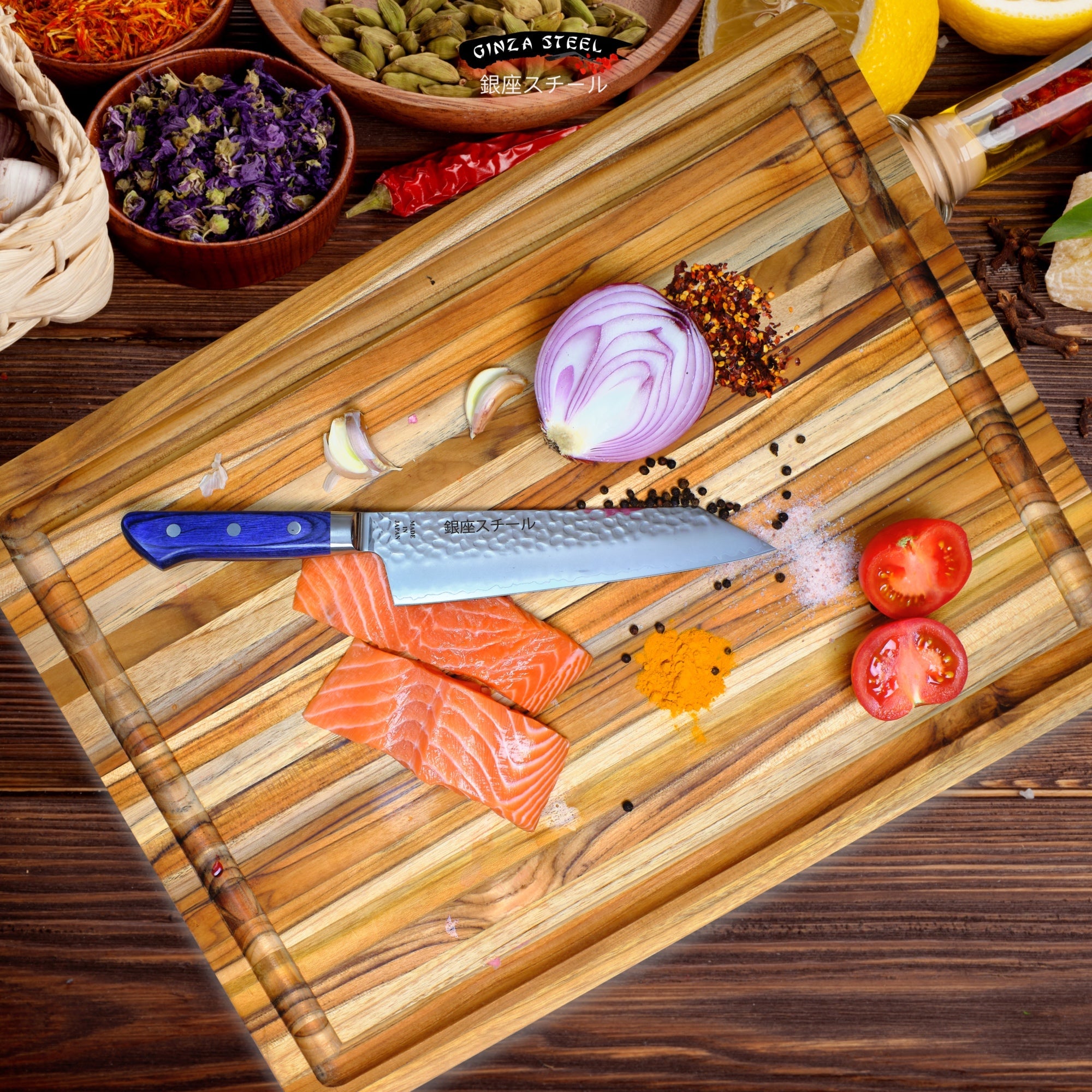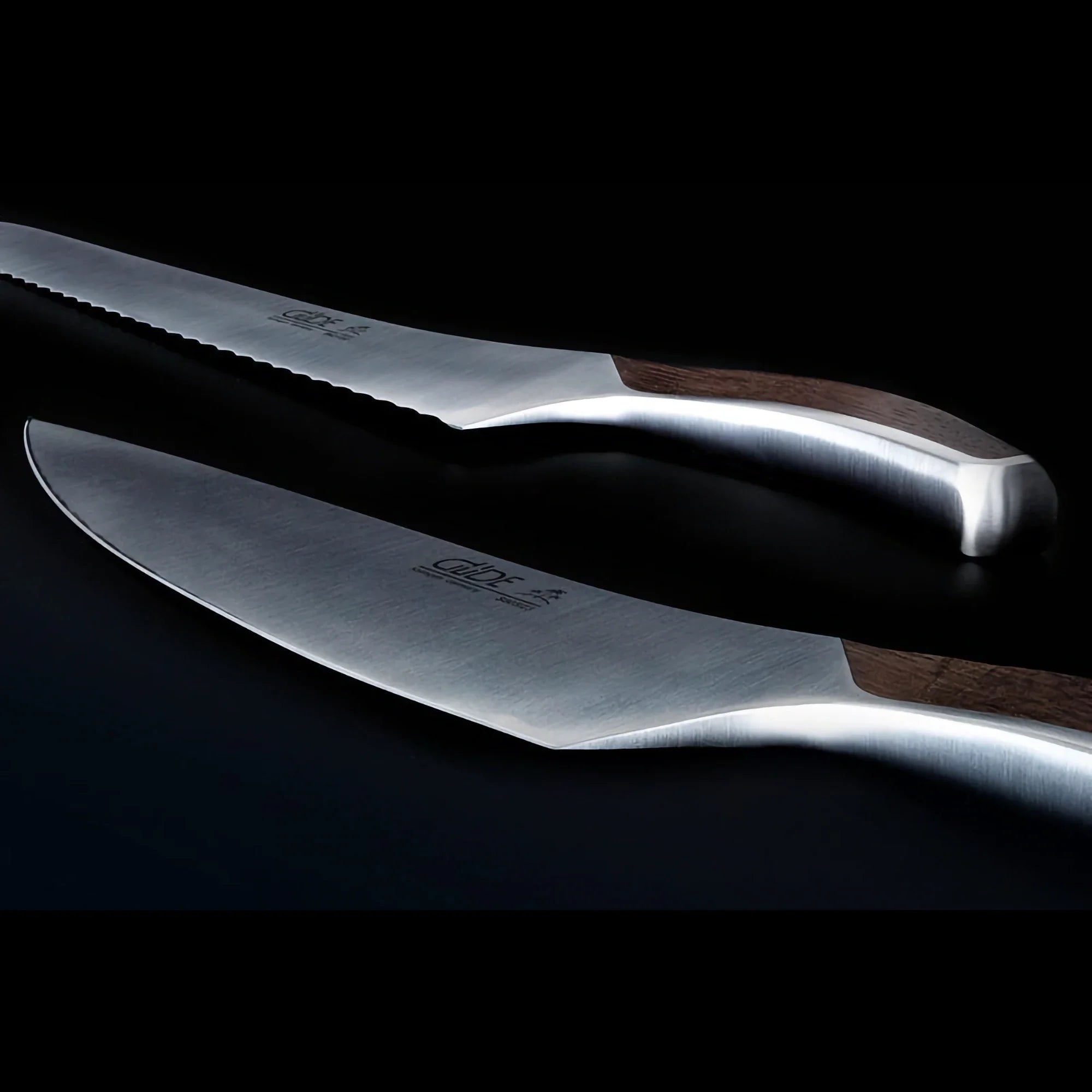
The Art of Japanese Knives: A Culinary Companion
The Art of Japanese Knives: A Culinary Companion
Japanese knives are more than just kitchen tools; they're the embodiment of centuries-old craftsmanship, precision, and tradition. From the renowned samurai swords to the delicate kitchen knives used by sushi chefs, Japanese blades have a storied history that transcends mere functionality. In this blog post, we delve into the world of Japanese knives, exploring their rich heritage, distinct features, and why they are cherished by chefs and enthusiasts worldwide.
The Legacy of Japanese Knife Making
Japanese knife making traces its roots back to the samurai era, where swordsmiths honed their craft to perfection. This tradition of excellence has been passed down through generations, with modern-day artisans still employing ancient techniques to create knives of unparalleled quality. From the famed swords of Seki city to the intricate kitchen knives of Sakai, each blade carries with it a legacy of skill and dedication.
Understanding the Anatomy of Japanese Knives
Japanese knives are known for their unique shapes and profiles, each designed to excel at specific tasks. From the slender yanagiba for slicing sashimi to the versatile santoku for chopping vegetables, every knife serves a distinct purpose in the culinary arsenal. Understanding the anatomy of Japanese knives, including blade types, handle materials, and edge geometry, is essential for choosing the right tool for the job.
The Quest for Sharpness
Sharpness is the hallmark of Japanese knives, and achieving the perfect edge is a pursuit of perfection for craftsmen and chefs alike. Traditional Japanese blades are renowned for their razor-sharp edges, capable of slicing through ingredients with unparalleled precision. Techniques such as hand-honing and waterstone sharpening are employed to maintain the sharpness and longevity of these prized blades.
Japanese Knives in the Modern Kitchen
While Japanese knives have a deep-rooted history, they continue to evolve to meet the demands of the modern kitchen. Chefs around the world now recognize the superior performance and ergonomic design of Japanese blades, incorporating them into their culinary repertoire. Whether you're a professional chef or a home cook, investing in a Japanese knife can elevate your cooking experience to new heights.
Choosing the Right Japanese Knife
With a plethora of options available, choosing the right Japanese knife can be daunting. Factors such as blade type, steel quality, and budget all play a role in the decision-making process. Whether you opt for a classic gyuto or a specialized deba, selecting a knife that aligns with your cooking style and preferences is essential for maximizing its utility and enjoyment.
Conclusion
Japanese knives are more than mere kitchen tools; they're a testament to the artistry, heritage, and craftsmanship of Japan. From the precision of the blade to the elegance of the design, each knife tells a story of tradition and excellence. Whether you're a seasoned chef or an aspiring home cook, adding a Japanese knife to your collection is a step towards culinary mastery.


















Leave a comment
This site is protected by hCaptcha and the hCaptcha Privacy Policy and Terms of Service apply.